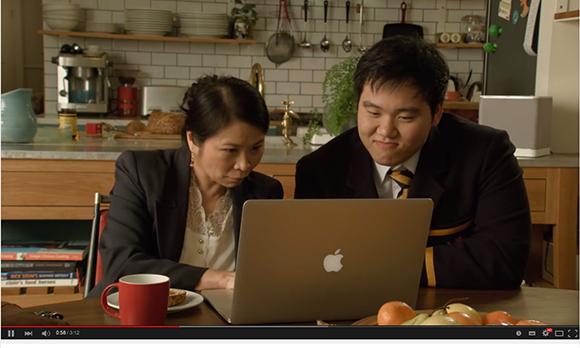Review of foundational knowledge material is essential for success at later stages of a degree. This project developed an online learning package that guides students through the review of two finance topics using a combination of well-produced videos, readings and review questions.
Team members:
- Associate Professor Gerhard Van de Venter (UTS Business School)
- Deborah Cotton (UTS Business School)
- Dr Gregory Ferris (Faculty of Arts and Social Sciences).
What were the aims of the project?
Most courses at UTS require foundational knowledge that is essential if students are to move on successfully to the later stages of their degree. Not all students have the same level of knowledge and this can cause problems down the track. To address this we developed a learning package that students can access online. We wanted this package to act as a prototype for other areas, including other disciplines and faculties. Ideally the structure of the package would be transferable.

Can you describe the project?
The project brought together academics from the UTS Business School and Faculty of Arts and Social Sciences (FASS).
We chose two core finance topics on which to base the packages:
- Time value of money
- Bond valuation
Each package contained:
- A video
- Reading material
- Practice questions
The videos were scripted around practical examples of business finance. We wanted high production values and tight, interesting scripts, hence we worked with Dr Gregory Ferris from the Media Arts and Production area of FASS. We hired professional actors and took great care with the sets and props. We wanted the videos to last so we ensured we had a classic look that wouldn’t date. This meant paying attention to things like clothing and furniture.
The package also included all the workings for the calculations included in the videos.
We ran the learning package in the Spring semester of 2014. At the beginning of semester students enrolled in an undergraduate and a postgraduate finance subject were provided with a link to the learning package and asked to review it before the next lecture.
During the following lecture students were asked to complete a questionnaire that would allow us to test the effectiveness of the learning package. They were asked to complete questions related to their pre-requisite knowledge, their level of interest and engagement with the video (for those who had seen it) and to answer a technical question on the material covered in the learning package.
How did it go?
Initial indications are that the vast majority of students felt the learning package was helpful.
We are very happy with the package as a whole and how it fit together. We felt it was more effective than asking students to review foundational knowledge without giving them any guidance. It has great potential for use in balanced teaching periods, where teaching has to be fit into a slightly tighter timeframe. It would suit the preparation period at the beginning of semester, Week 0.
What did you learn?
In terms of the video production, it is cheaper to do multiples. It was cheaper to do two videos than only one, for example. Ideally we would develop the videos in bulk, with the aim of using them across different courses that required the same foundational knowledge. If you are careful with the elements that may date the video it will last for several years, eliminating the need for a costly shoot every year.
We enjoyed the cross-faculty collaboration. It is sometimes difficult to find opportunities to collaborate, so this is an example of how it can be done.
Was there any follow on?
This provides a template package that can be adapted for other subjects and disciplines and we’re currently working with another subject leader to make this happen.
We have a whole set of scenarios that cover a spectrum of finance topics. It would be useful to produce those as videos so we have a cohesive set of packages that work together.
The learning package
- Scenario 1 video: Buying a car
- Scenario 2 video: Company expansion
- Learning package for long term debt valuation
What to find out more?
Contact Gerhard Van de Venter.

